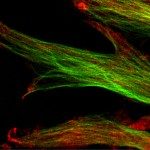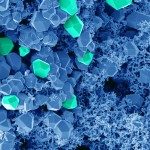We are looking for postdoctoral candidates interested to apply for a MSCA IF EF-ST funding on molecular crowding effects on protein – protein interactions and protein membrane interactions. Motivated, team-spirited young or confirmed post-doc fellows can apply. MSCA IF EF-ST funding is more dedicated to post-doc fellows (for a 2d, 3d or 4th post-doc position) than for a first post-doc just after a PhD. Young French scientists or people who already worked in France are not eligible (see MSCA guidelines, more precisely MSCA IF EF-ST: Marie Skłodowska-Curie Action Individual Fellowships Standard European Fellowships). A critical point is the publication list, including first author articles in international peer-reviewed journal.
Deadline: send emails until the 21st August; submission deadline to MSCA: 15th September 2016
Project title: Protein behavior in crowded environment: Effect of molecular crowding on ligand-binding, protein-protein and protein-membrane interactions
Keywords: Molecular crowding; adenylate cyclase CyaA toxin; protein ligand interaction; protein membrane interaction; protein folding and stability
Project: Macromolecular crowding is a characteristic of all living organisms: biological fluids and cells are composed of a large variety of macromolecules that together occupy a significant fraction (10–40%) of the volume. The resulting steric exclusion, since a fraction of the space is physically inaccessible to other molecules, has consequences on both rates and equilibria of biochemical reactions, and consequently favors the conformations that occupy less molecular volume. For instance, crowded environments affect proteins as they experience volume restrictions due to the surrounding macromolecules, thus favoring (i) the most compact and stable conformations of proteins, (ii) multimerization between proteins, (iii) increasing protein-ligand affinity and (iv) membrane interactions. Hence, the physico-chemistry of proteins in crowded environments is expected to mimic in vivo conditions and to be markedly different than those in dilute solutions in vitro. In this application, we propose to investigate the effect of molecular crowding on the successive steps of the intoxication process of the CyaA toxin, which offers the opportunity to evaluate the impact of the four properties mentioned above. Besides basic sciences, the expected outputs will be instrumental to improve the CyaA-based biotechnological applications developed in the Unit.


